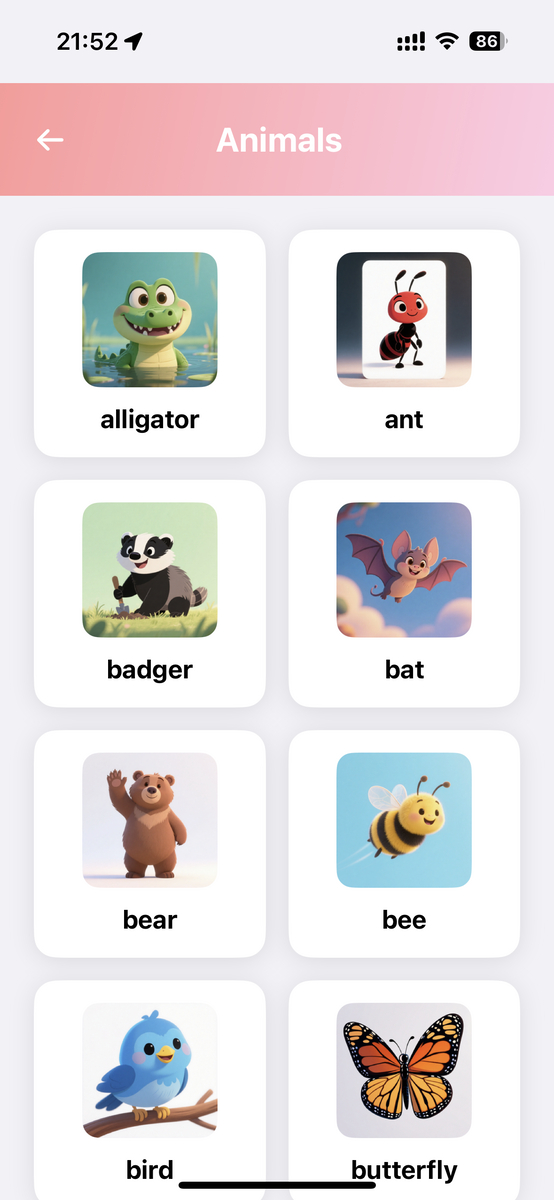10 Proven Vocabulary Building Tips Every Parent Should Know

Building your child's vocabulary is one of the most powerful gifts you can give them. A rich vocabulary enhances reading comprehension, academic success, and communication skills. Here are 10 research-backed strategies that every parent can implement today.
💡 Quick Tip
Children learn an average of 3,000 new words per year during their early school years. With the right strategies, you can significantly boost this number!
1. Read Aloud Together Daily
Reading aloud exposes children to vocabulary they wouldn't encounter in everyday conversation. Studies show that picture books contain 50% more rare words than prime-time television.
2. Use Rich, Descriptive Language
Instead of saying "The dog is big," try "The dog is enormous" or "gigantic." Children naturally absorb the vocabulary they hear most often.
Instead of:
- "It's hot outside"
- "The car is fast"
- "She's happy"
Try:
- "It's sweltering outside"
- "The car is speedy/rapid"
- "She's delighted/thrilled"
3. Make Vocabulary Visual
Children are visual learners. Pairing words with images creates stronger memory connections than text alone. This is why apps like WordCards Plus are so effective.
- • Create word walls with pictures
- • Use flashcards with colorful illustrations
- • Draw or find images for new words
- • Use educational apps with visual elements
4. Practice in Context
Words learned in isolation are quickly forgotten. Always introduce new vocabulary within meaningful contexts and real-life situations.
Context Example:
Word: "Magnificent"
Context: While looking at a sunset: "Look at that magnificent sunset! The colors are absolutely magnificent - so beautiful and impressive!"
5. Play Word Games
Games make learning fun and memorable. Here are some favorites:
🎲 20 Questions
Builds descriptive vocabulary and thinking skills
📝 Word Association
Connects related words and concepts
🎭 Charades
Builds understanding through action
🏷️ Labeling Games
Connects words to objects
6. Encourage Curiosity About Words
When your child asks "What does that mean?", celebrate! Make looking up words together a positive experience.
- Keep a child-friendly dictionary handy
- Use online resources together
- Explore word origins and history
- Make "word detective" games
7. Repeat, Repeat, Repeat
Children need to encounter a new word 6-14 times before it becomes part of their active vocabulary. Don't be afraid to use new words repeatedly in different contexts.
8. Use Technology Wisely
Educational apps can be powerful vocabulary-building tools when used correctly:
WordCards Plus Features for Vocabulary Building:
- • Visual word cards with stunning illustrations
- • Native speaker pronunciation for every word
- • Organized categories for systematic learning
- • Bilingual support for multilingual families
- • Progress tracking to monitor growth
9. Connect to Your Child's Interests
If your child loves dinosaurs, focus on dinosaur-related vocabulary. Interest drives learning and retention.
Dinosaur Lover
Herbivore, carnivore, fossil, extinct, prehistoric
Sports Fan
Tournament, championship, athlete, compete, victory
Art Enthusiast
Canvas, palette, sculpture, masterpiece, creative
10. Celebrate Progress
Acknowledge when your child uses new vocabulary correctly. Positive reinforcement encourages continued learning and builds confidence.
Start Building Vocabulary Today!
With these proven strategies and the right tools, you can dramatically improve your child's vocabulary. Remember: consistency is key, and every word counts!
